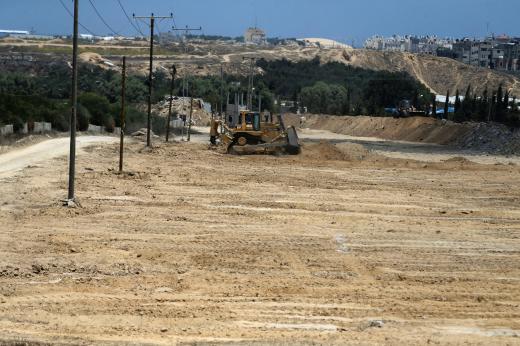After 31 years of diplomatic tensions between Egypt and Iran, there are signs that relations between the two countries may be warming. In early October 2010, Iran and Egypt signed an agreement to resume direct flights between Cairo and Tehran. Although the Egyptian Minister of Civil Aviation, Ahmed Shafiq, declared the agreement was economic, rather than political, in nature, several experts believe it signals a potential shift in Iranian-Egyptian relations.
"Such agreements are the beginning of how you re-establish relations… It is a classic model of how to rebuild mutual confidence,” said Anoush Ehteshami, director of the Centre for the Advanced Study of the Arab World at Durham University. “Egyptians and Iranians are in regular contact. Resuming direct flights is another step towards more systematic relations.”
Sophie Pommier, a lecturer at Sciences-Po in Paris and an expert on Egyptian affairs, believes the agreement is part of a broader attempt at a rapprochement between the two countries. “In 2007, [Iranian President] Ahmadinejad declared he was ready to come to Cairo and he repeated his offer in June 2009," said Pommier. "On the Egyptian side, President Hosni Mubarak stated in October 2010 that Iran had a positive role to play in the region.”
Others however are more skeptical. “I would be careful not to read too much into this” Elijah Zarwan, a senior analyst at International Crisis Group, said. “Egypt and Iran are at cross-purposes on a number of important issues across the region, and will likely remain so in the near future, an agreement to resume direct flights notwithstanding.”
What exactly are the issues that shape this bilateral relationship? What can bring both countries closer together or push them further apart?
Old bones of contention still persist. After enjoying close ties for much of the 1970s, Egypt and Iran diverged in 1979, when Ayatollah Khomeini toppled the Shah and established the Islamic republic. While Khomeini was nurturing a strong anti-western policy, Anwar al-Sadat, Egypt's president at the time, was preparing for peace with Israel at Camp David. Since then, both countries have maintained very different relationships with the US and Israel.
While these discrepancies in foreign policy remained, other issues put both countries at loggerheads.
Iran's growing regional influence in the wake of the US invasion of Iraq has been a source of concern for Egypt. “Egypt is worried and irked because it feels that Iran has grown at the detriment of its own international stature,” said Pommier.
Palestine is another area of where Egypt and Iran find themselves in a regional tug-of-war. Egypt has been increasingly concerned about Iranian influence, particularly on Hamas in the Gaza Strip, which lies along Egypt's eastern border. Egypt sees Iran as undermining its efforts to promote Palestinian national reconciliation.
Iran's nuclear program is also worrisome for the Egyptians. “If Iran would develop nuclear weapons, there would be no Arab response. It would destroy Egypt's hope to create a Nuclear Weapons Free Zone in the Middle East,” said Ehteshami.
However, Mustapha al-Labbad, director of the Cairo based al-Sharq Center for Regional and Strategic Studies, is less concerned by the threat posed by Iran. “Egypt won’t be happy about Iran getting nuclear military power, but the real threat is directly next door, not 3000 kilometers away. It would be a paradox to accuse Iran while you have already a neighbor [Israel] with nuclear capabilities,” he said.
Nevertheless, Egypt has remained clear and consistent in its opposition to any military aggression against Iran.
There are numerous smaller issues which divide the two countries, including the treatment of Shias in Egypt and Iranian ambitions in Sudan, a key Egyptian ally in Nile water negotiations that Cairo cannot afford to lose.
Despite these divergences, an interest in renewing Egyptian-Iranian relations is crystallizing.
As Saudi Arabia and Iran are engaging dialogue, Egypt fears regional isolation and is trying re-assert its presence.
“Egyptians are looking at themselves as a regional power. As they look for more leverage in the region, they must cooperate with Tehran,” said al-Labbad. “Egypt is not going to build an excellent relationship with Iran, but Egypt seeks to diversify its regional relationships.”
For Pommier, regional considerations are not the only factor motivating Egypt's stance on Iran. Egyptian domestic issues, which have fueled questions about the country's political future, also play a role in Cairo’s desire to ease tensions with Tehran.
"Egypt is entering a period of domestic uncertainty. Fearing internal troubles, Egypt wants to ease relations with its neighbors, including Iran," she said. “There is a large gap between local public opinion and the Egyptian regime. Egypt is annoyed by Iran, whose leader, Ahmadinejad, has huge popularity,” she affirmed. That said, there are also worries in Cairo about Hezbollah activities in Egypt, especially its support for Palestinians in Gaza, added Pommier.
On the Iranian side, a rapprochement with Egypt can provide Tehran with the regional recognition which it currently seeks.
“Iran is facing regional opposition, which it wants to break,” said al-Labbad. “Moreover, Iran’s economy is likely to undergo a crisis because of international sanctions and the Suez Canal is economically very important.”
“This is a game of realpolitik. We cannot separate economics and politics, because having an economic relationship necessitates a political relationship,” al-Labbad concluded.



